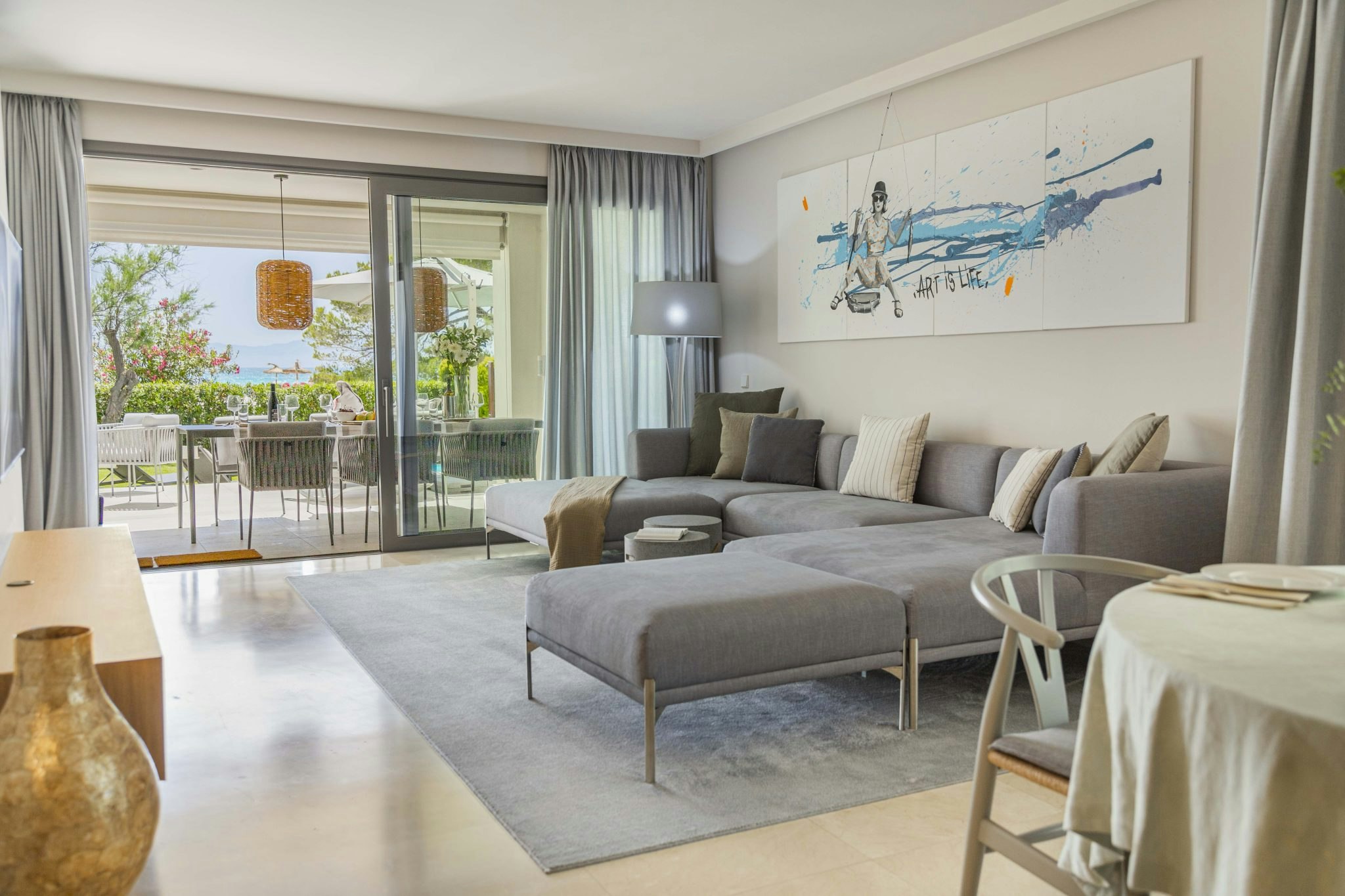Millennials have long accepted that it's going to take them a lot longer than their parents to save up for a home — let alone buy a second one. Enter a new group of fintechs promising retail investors a slice of the property pie, without the need to give up avocado toast! The catch — in most cases, you've still got to be rich to play.
Some eighteen fractional ownership real estate startups have cropped up in Europe in the past four years, and just this month Berlin-based Myne raised a €23.5m seed round while London-based Lilo raised a €3m seed.
Just don’t call them timeshares.
The two models
Fractional ownership isn’t new: it’s had quite a few iterations in the analogue real estate world for decades. From crowdsourced new-build properties to that timeshare your 70-year-old aunt’s best pal has in the Costa del Sol, the model has been around since the 1960s.
It was only a matter of time before the concept was adopted by the fintech world, and as the cost of living bites the average household, VCs have been pouring serious money into the startups promising a slice of real estate luxury for those who still have cash to spare.
Fractional ownership startups have been a success in the US, which the founders of these European copycats are using as a proof point. For the average household, the idea of buying into a second home with fluffy towels and Aesop soap on tap might seem pretty unrelatable. But the majority of these startups are targeting the top 10% of earners — who they’re confident will remain relatively unaffected by a potential recession.
75% of people we surveyed wanted to make real estate investments, but only 15% actually do — it’s too complicated
So it’s not exactly fintech for the masses, but wealthy retail investors still have a clear appetite for making their money work. As crypto crashes, and tech stocks take a tumble, this might just be stable old real estate’s time to shine.
They’re divided into two schools. One is slightly closer to the T-word (timeshare); they give investors a solid slice of ownership via purchasing a share of the assets. They’re typically targeting quite well-to-do investors who fancy a second home they can use for a month or more each year, and minimum investments start at around £100k.
The second school is targeted at a wider investor base, with minimum investments for as little as £100. These properties include commercial projects and residential leases, but you can’t vacation there (yet).
So who’s doing this in Europe?
Invest
Louve Invest
Paris-based Louve Invest raised a €2m seed from investors including Kima Ventures and LocalGlobe last November for its real estate investing platform, through which it pairs investors with portfolios of commercial and residential properties that are owned by asset managers — effectively acting as the broker.
Investors can log into its app and choose between different portfolios, filtering according to asset class and geography, how much they have to invest and their risk profile. Although Louve is technically “open to anyone” to use, its user base is heavily skewed towards high-income individuals. Louve doesn’t finance construction itself — these assets are ready to go and will generate rental income from the minute people invest.
Louve takes a standard 6% commission fee from the managers of the property portfolios when it sells them to its investors. But it then gives investors 2.5% cash back on their investments within 60 days.
Although it has a number of first-time investors using its platform to invest smaller amounts, the average ticket size is €10k — which cofounder and CEO Clement Renault tells Sifted is pushed up by quite a few investors making bets of €300k or more.
“When we were doing our research we found that about 75% of the people we surveyed wanted to make real estate investments, but only around 15% actually do it — because it’s too complicated and they don’t want to have tenants to manage,” Renault says.
Although Louve only offers the ability to invest in these properties at this stage, Renault says the company already offers some loan facilities and is looking into offering mortgages in 2023. Most of the properties on the platform are commercial, but it’s planning on offering more individualised residential properties further down the line, and even matching tenants with investors.
Brxs

Amsterdam-based Brxs is taking a slightly different approach by solely offering residential properties on its investment platform.
Investors can purchase a share of one of Brxs’s properties — which are all leased out to tenants — for as little as €100. Traditionally, these types of properties were owned by family offices or banks — but Brxs’s mission is to open up real estate assets to everyone.
“We realised our generation [millennials] might not be able to buy a house until they’re 40 or 50. You can buy fractional art pieces, crypto and shares everywhere quite easily, but you can’t participate on the same level when it comes to real estate,” founder and CEO Amrita Ramsaransing tells Sifted.
Investors can choose individual properties to invest in through the Brxs app, based on their look and feel. Brxs buys the properties directly and, unlike the crowdsourcing models that often promise properties that are being developed, all its properties are built and ready to lease. So far, the average investment has been €700, and investors get a quarterly payout from their property’s rental income that’s proportionate to the size of the share they own.
Experience
Lilo

On the other end of the spectrum, London-based Lilo is gearing up to launch the first properties on the platform it’s created to offer “invest and experience” assets.
What does that mean in practice? Think Soho House does timeshares. It’s targeting millennials with quite a bit of spare cash who might already live across several locations — like European tech workers or wealthy creatives.
Lilo is building a portfolio of luxurious properties across different locations, mainly focused on European cities where these young professionals may be planning to split their time working remotely. Investors can buy an eighth share of a property to use it for 30 days a year — the typical industry quota used for estimating how much a household uses a second home.
Each property is worth between £1m and £3m, so fractions work out from around £100k to £300k. Investors pay a “small maintenance fee” each month for property managers so that when they rock up to their timeshare property for a holiday, even the brand of soap they prefer will be waiting for them.
“These are successful, ambitious people whose existing lifestyles we’re just complementing and enhancing,” cofounder Emily Chan tells Sifted. “They get to enjoy these beautiful luxury properties and at the same time benefit from property appreciation.”
Myne

Berlin-based Myne is taking a slightly more traditional approach to the second home timeshare product, and has a portfolio of over 30 properties in popular holiday destinations like the Alps, Canary Islands, Mallorca and Ibiza.
Like Lilo, its target customers are well-to-do: their average household income is more than €100k and minimum investments start at €50k. Its properties have market values of between €750k and €3m and can be shared by up to eight people. Each co-owner’s share equates to 44 days’ use a year, for either holiday usage or rental income.
After the initial investment, co-owners also pay a €99 monthly fee for maintenance of the properties and for extras like having the fridge filled with their favourite wine.
Myne makes money from managing the co-ownership structure and property transactions, as well as the monthly maintenance fee and commission it charges if one co-owner wants to sell their shares to another.
All this certainly comes under the luxury category, but Myne cofounders Nikolaus Thomale and Fabian Löhmer tell Sifted that they aren’t worried about the cost of living crisis impacting its sticking power.
“We believe more people will be cautious about costs and resources and therefore be even more willing to share things where it just makes a lot of sense from an economical, social and overhead point of view,” they tell Sifted.
Although they’re currently focused on what they call the “financial and emotional returns” of the shared second home model, further down the line Myne intends to focus more on the investment side of its offering, as well as financing solutions like mortgages.
There are at least 14 other startups that have adopted versions of these two models in Europe, including Altacasa, investown and Vivla — read more about them in Sifted’s Pro briefing on fractionalisation here.
Amy O’Brien is Sifted's fintech reporter. She tweets from @Amy_EOBrien and writes our fintech newsletter — you can sign up here.


